In a surprise move, Sinn Fein have agreed to create an anti-Brexit pact and have stood aside in three seats in the Northern elections to allow anti-Brexit candidates to run.
Due to the fact that Sinn Fein does not take their seats in Westminster the clout of the anti-Brexit movement is greatly diminished.
The leading nationalist party in the six counties announced Monday afternoon that it will step aside in three of the province’s 18 constituencies in order to boost the chances of other anti-Brexit candidates in the December 12 poll.
Sinn Fein have decided not to run candidates in South Belfast, East Belfast and North Down, in a bold attempt to give pro-remain candidates an edge against the hardline pro-Brexit Democratic Unionist Party (DUP).
Read more: 65 percent in North believe united Ireland will happen because of Brexit
In a move that would have been unthinkable a few years ago, the republican party will now urge its supporters to support a moderate independent unionist, Lady Sylvia Herman, in order to defeat the DUP in North Down.

Lady Sylvia Herman. (Via: Twitter / DownHighSchool)
Lady Sylvia defeated the DUP candidate Alex Easton by a very slim majority of just 1,200 votes in North Down in the June 2017 General Election.
The 10 DUP MPs have held the balance of power in the United Kingdom since that election, while Sinn Fein – despite having seven MPs – have maintained a policy of abstentionism.
Read more: Uncivil wars in the US and the UK are harming us overseas
They follow a long-standing tradition among Irish republicans of refusing to travel to London to take up their seats, which would involve swearing allegiance to the Queen of England at Westminster.
Sinn Fein voters in Northern Ireland do not expect their MPs to take up their seats in London and the party’s leader, Mary Lou McDonald, said Monday afternoon that she saw no contradiction in asking republicans to vote for a unionist candidate.
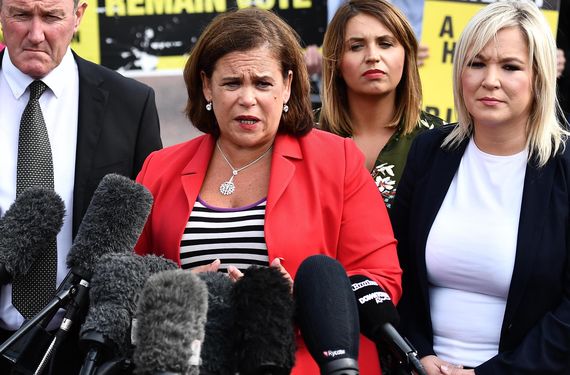
Sinn Fein President Mary Lou McDonald.
“You can call this a pact. You can call it what you wish. The reality is that we’re asking people to come out and to vote for those pro-remain candidates,” McDonald told reporters in Belfast.
“It sits very comfortably with me to ask and invite voters to thoughtfully do the right thing.”
She accused hard Brexiteers such as DUP deputy leader Nigel Dodds of acting “very, very recklessly” against the interests of everybody in Northern Ireland.
Just hours earlier on Monday, the moderate nationalist Social Democratic and Labour party (SDLP) – the party of Nobel Peace Prize winner John Hume – also announced that it would stand down in North Belfast, East Belfast, and North Down.
The pact between the two nationalist parties, who famously worked together to build peace before the 1998 Good Friday Agreement, could help the current Sinn Fein Lord Mayor of Belfast, John Finucane, take Dodds’ seat in North Belfast.
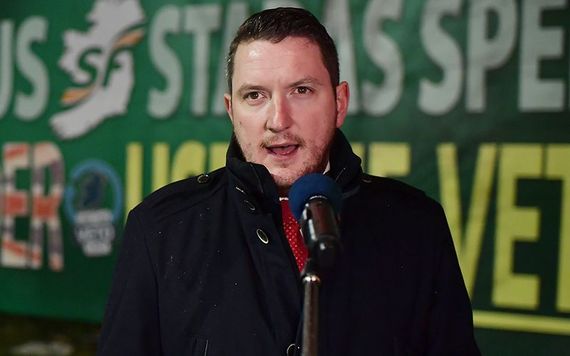
Sinn Fein Lord Mayor of Belfast, John Finucane.
Finucane came within just 2,000 votes of Nigel Dodds in the June 2017 election and his profile has been boosted since he became first citizen of the city. He is the son of Pat Finucane, the Belfast human rights solicitor who was murdered by loyalist terrorists – amid allegations of collusion with the security forces – in his family home in 1989.
As a result of Monday’s pact, the chances of Claire Hanna of the SDPL overcoming the DUP’s Emma Little-Pengelly have also been boosted in South Belfast.
And Naomi Long, leader of the centrist Alliance Party (which sees itself as neither nationalist nor unionist) will have a much greater chance of defeating the DUP in the absence of both the SDLP and Sinn Fein in the unionist heartland of East Belfast.
Unlike the Republic, Northern Ireland and Britain have a one seat “first past the post” system. Voters cannot transfer their preferences from one candidate to another, which means that tactical voting is crucial to electoral success.
Read more: Brexit will upend Irish and British history
Two strong nationalist or unionist candidates could split the vote in a “sectarian” headcount and allow a candidate from the other side to win.
The moderate SDLP, the second most popular nationalist party after Sinn Fein, described their own decision to stand down in three constituencies as an “extraordinary decision” for what will be an extraordinary election.
Monday’s developments follow some controversy over the prospect of a pact between the two main unionist parties in North Belfast.
Last week Steve Aiken, the leader of the Ulster Unionist Party (UUP), ruled out an electoral pact with the larger DUP. Although Aiken is pro-remain, his decision attracted criticism as it put the seat of a fellow unionist at risk.
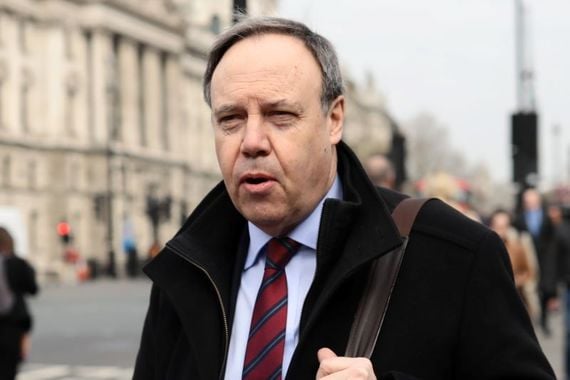
DUP Deputy Leader Nigel Dodds.
While the DUP and UUP are on opposite sides of the Brexit debate, concerns were expressed that Aiken would split Nigel Dodds’ vote. Suspected loyalist paramilitaries threatened retaliation against his party.
The Police Service of Northern Ireland (PSNI) is currently investigating the alleged threats against the UUP for its initial refusal to form a unionist pact in North Belfast.
“It is better to elect Nigel Dodds in North Belfast and hold him to account for his promises on the union than facilitate the election of an abstentionist Sinn Féin MP who still cannot condemn IRA violence,” said Aiken.
Although the pro-Brexit DUP is the biggest party in Northern Ireland, with 10 of the 18 seats, 56% of voters in the province voted against leaving the EU in the 2016 Brexit referendum.
Many voters are alarmed that UK Prime Minister Boris Johnson is determined to railroad Great Britain and Northern Ireland into Brexit, no matter what the consequences and they see the importance in tactical voting, even if it means republicans voting for “moderate” unionists to defeat the DUP.
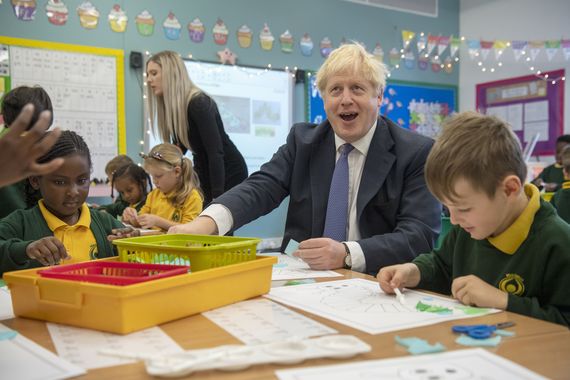
UK Prime Minister Boris Johnson.
Voters in Northern Ireland see the benefits of peace 21 years after the Good Friday Agreement transformed their lives and cannot countenance a return to a “hard border” and the hated signs of division they were sure they had left behind.
In Northern Ireland, the 2019 election is now set to become an unofficial vote on the Brexit issue which has caused so much division – and opened up so many old wounds – across Britain and Ireland over the past three years.
Supporters of Sinn Fein, Alliance, the SDLP, and some moderate unionists will be keen to remind the British Government and the DUP that the people of Northern Ireland did not vote for Brexit in 2016 when they return to the polling stations next month.
* Ciaran Tierney won the Irish Current Affairs and Politics Blog of the Year award in October 2018. Find him on Facebook or Twitter here. Visit his website here - CiaranTierney.com. A former newspaper journalist, he is seeking new opportunities in a digital world.
Read more: Death threats for Armagh man as 8 arrested in Vietnam over 39 people smuggling deaths
This article was submitted to the IrishCentral contributors network by a member of the global Irish community. To become an IrishCentral contributor click here.



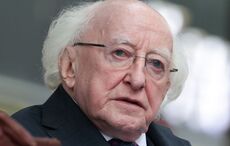
Comments